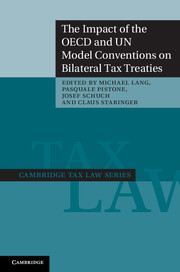Book contents
- Frontmatter
- Contents
- Contributors
- Preface
- Table of cases
- Table of statutes
- General report
- 1 Argentina
- 2 Australia
- 3 Austria
- 4 Belgium
- 5 Brazil
- 6 Canada
- 7 Chile
- 8 China
- 9 Colombia
- 10 Croatia
- 11 The Czech Republic
- 12 Estonia
- 13 Finland
- 14 France
- 15 Germany
- 16 Hong Kong
- 17 Hungary
- 18 India
- 19 Italy
- 20 Lebanon
- 21 Liechtenstein
- 22 The Netherlands
- 23 New Zealand
- 24 Norway
- 25 Peru
- 26 Poland
- 27 Portugal
- 28 Romania
- 29 The Russian Federation
- 30 Serbia
- 31 Slovakia
- 32 Slovenia
- 33 Spain
- 34 Sweden
- 35 Uganda
- 36 The UK
- 37 The USA
- Index
- References
17 - Hungary
Published online by Cambridge University Press: 05 November 2014
- Frontmatter
- Contents
- Contributors
- Preface
- Table of cases
- Table of statutes
- General report
- 1 Argentina
- 2 Australia
- 3 Austria
- 4 Belgium
- 5 Brazil
- 6 Canada
- 7 Chile
- 8 China
- 9 Colombia
- 10 Croatia
- 11 The Czech Republic
- 12 Estonia
- 13 Finland
- 14 France
- 15 Germany
- 16 Hong Kong
- 17 Hungary
- 18 India
- 19 Italy
- 20 Lebanon
- 21 Liechtenstein
- 22 The Netherlands
- 23 New Zealand
- 24 Norway
- 25 Peru
- 26 Poland
- 27 Portugal
- 28 Romania
- 29 The Russian Federation
- 30 Serbia
- 31 Slovakia
- 32 Slovenia
- 33 Spain
- 34 Sweden
- 35 Uganda
- 36 The UK
- 37 The USA
- Index
- References
Summary
The relevance of the OECD and UN Model Conventions and their Commentaries for the interpretation of Hungarian tax treaties
Most of the tax treaties concluded by Hungary follow the OECD Model Tax Convention on Income and on Capital (OECD Model). This trend has been in place since 1976 when the first treaty after the Second World War was concluded. After the fall of the Iron Curtain in 1989, the OECD and the IMF assisted Hungary in developing domestic and international tax policy. In 1996 Hungary became a Member of the OECD. The Corporate Income Tax Law (81/1996) (CIT Law) and the Personal Income Tax Law (117/1995) (PIT Law) are clear on Hungary's position when declaring that the OECD Model was also taken into consideration during drafting. But Hungary does not only have treaties that follow the OECD Model; there are some (newer) treaties in the Hungarian treaty network that follow the United Nations Model Double Taxation Convention between Developed and Developing Countries (UN Model).
More sources, including the Rules of Taxation Law (92/2003) and the Corporate Income Tax Law, ensure the supremacy of double tax treaties over domestic law in Hungary; however, these sources are silent about the applicability of Commentaries. Judgments (available to the public) do not necessarily mention every detail of the decision-making process and it cannot be said whether the courts have taken Commentaries into consideration unless there is a direct reference to the OECD Model, which is quite rare. There is direct reference to the OECD Model, for example, in the case decided by the Supreme Court (Legfelsőbb Bíróság) on Article 23 concerning the avoidance of double taxation. The case concerned a sportsman who earned income from several treaty countries. The domestic law stipulated the credit method. The relevant treaties used the term ‘may be taxed’, but the articles on the elimination of double taxation clearly exempted the income in Hungary. Irrespectively, the Hungarian tax administration applied the credit method. According to the Court's interpretation, the OECD Model Convention and Commentary were nothing more than recommendations and countries were free to decide which method to apply. The Court further explained that the tax administration only had to make sure that the provisions of the treaty were applied prior to the provisions of the domestic law, but it did not exclude the applicability of both even if the domestic law was in conflict with the treaty.
- Type
- Chapter
- Information
- Publisher: Cambridge University PressPrint publication year: 2012
References
- 1
- Cited by

